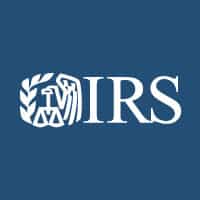
The IRS recently announced it was re-opening a second Employee Retention Tax Credit, or ERC, Disclosure Program. Under the terms of the ERC Voluntary Disclosure program, employers who submitted incorrect ERC claims can come forward and file a disclosure. In exchange for coming forward, those employers will receive a 15% discount on the tax owed and may avoid interest and penalties.
In recent months, the IRS has made announcements claiming it has received “tens of thousands” of erroneous ERC claims from employers. The IRS placed a moratorium ERC claims, blaming unscrupulous ERC preparers for the backlog which has continued to delay processing of pending ERC claims.
In an effort to manage the backlog, the IRS rolled out the first ERC voluntary disclosure program in late 2023. The first ERC disclosure program ended back in March 2024. The disclosure program requires the Taxpayer to “come clean” and state they filed an inaccurate claim. The closure program also required Taxpayers to provide information to the IRS including information regarding the individuals and businesses who prepared their ERC claims.
The second disclosure program keeps many of the key features of the first ERC disclosure program. It requires Taxpayers to make a disclosure to the IRS regarding amounts owed and the name of the preparer who prepared their ERC claims. The program also requires taxpayers to “cooperate” with the IRS and respond to requests for additional information. In exchange for making a disclosure, employers under the new ERC disclosure program will
- Receive a 15% discount on the tax owed;
- May avoid interest and penalties if amount owed is promptly paid in full. (Interest and late payment penalties may apply if the employer enrolls in an installment agreement to pay the balance).
It should be noted that taxpayers with erroneous ERC claims could potentially face steep penalties. The penalties may include fraud penalties, accuracy penalties, and late payment penalties as well as potential criminal prosecution.
There are some limitations to the new program. Some of the key limitations are:
- The new program is only for 2021 calendar year claims (relief for 2020 claims is not available);
- The program is not available for claims currently under audit or claims the IRS previously rejected;
- The deadline to apply for the program is November 22, 2024;
- The program is for employers who made an ERC claim and received a refund. Employers that made a claim and did not receive a refund may consider withdrawing their claim.
Employers with questionable ERC claims should seriously consider enrolling in the new ERC disclosure program. They can save 15% of the erroneous refund claim as well as interest and penalties. The IRS has announced it will focus its enforcement actions against taxpayers who submitted fraudulent ERC claims.
RJS LAW has helped hundreds of businesses with a wide range of tax problems including audits and ERC issues. Contact us for a free consultation if you have any questions or concerns with your business’ ERC claims. We can also be reached by telephone at 619-595-1655.
Written by Joseph Cole, Esq., LL.M.

Leave a Reply